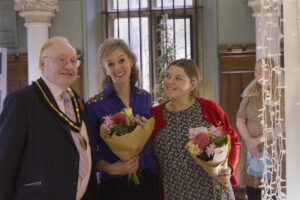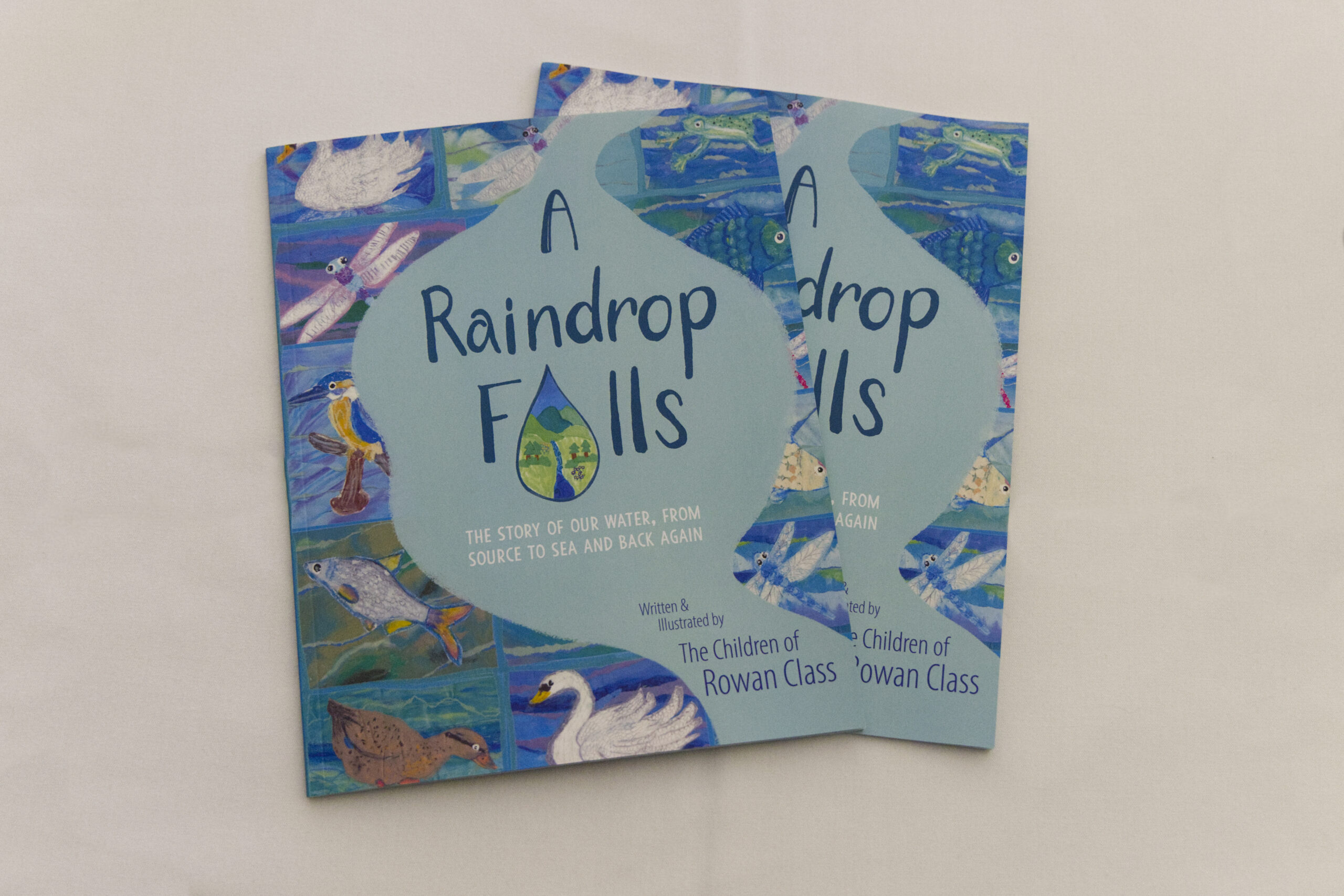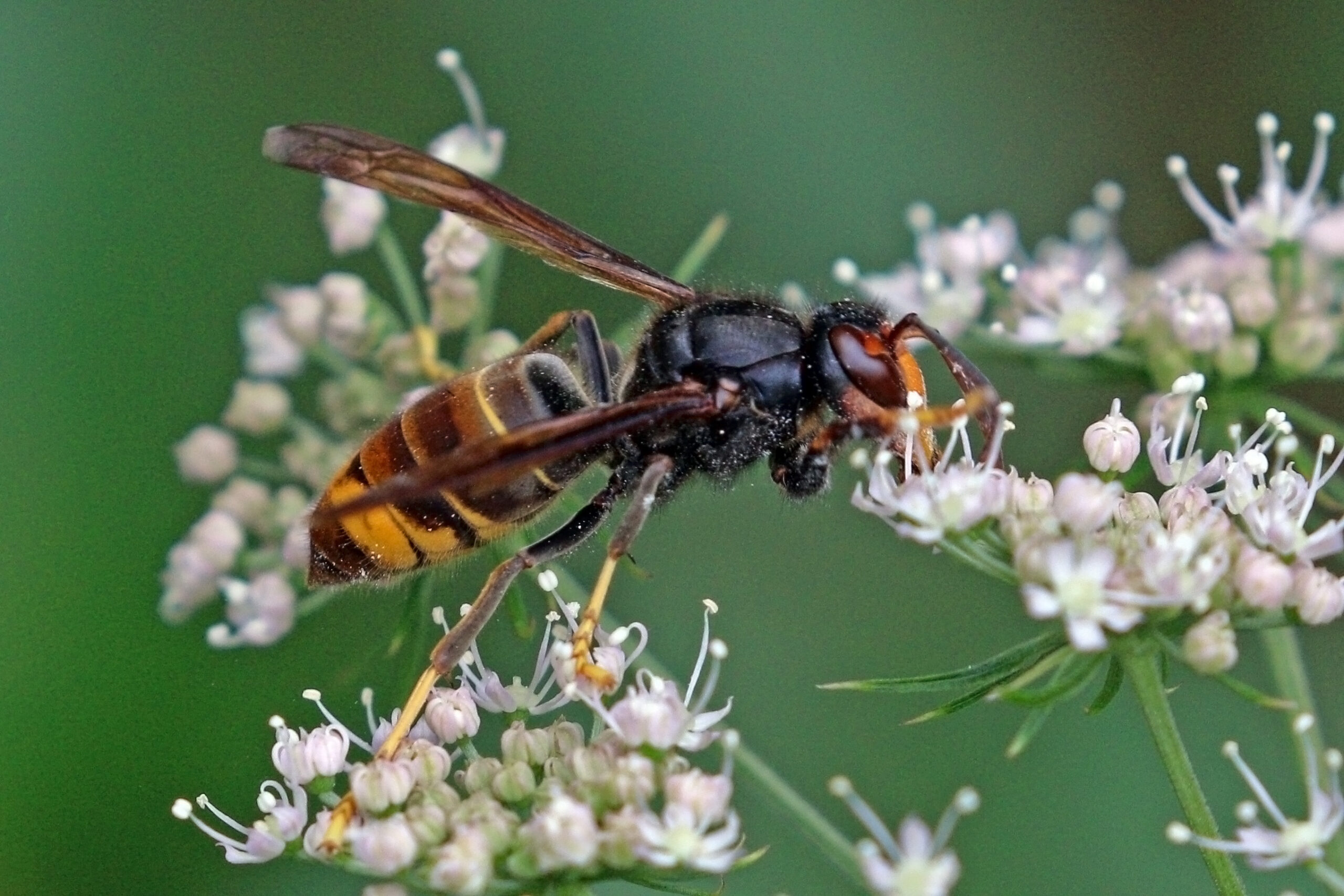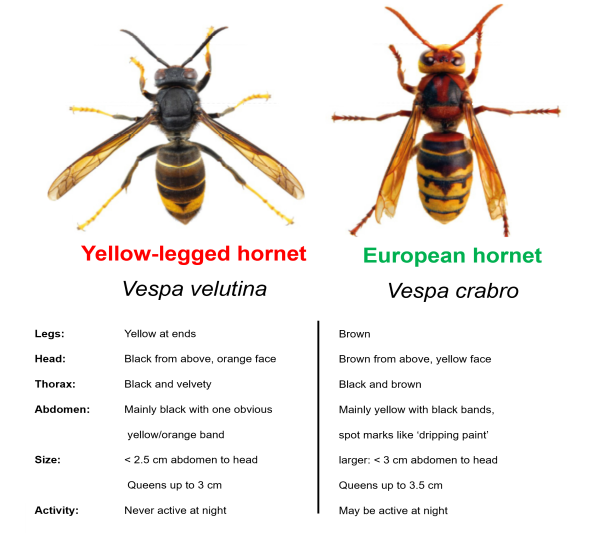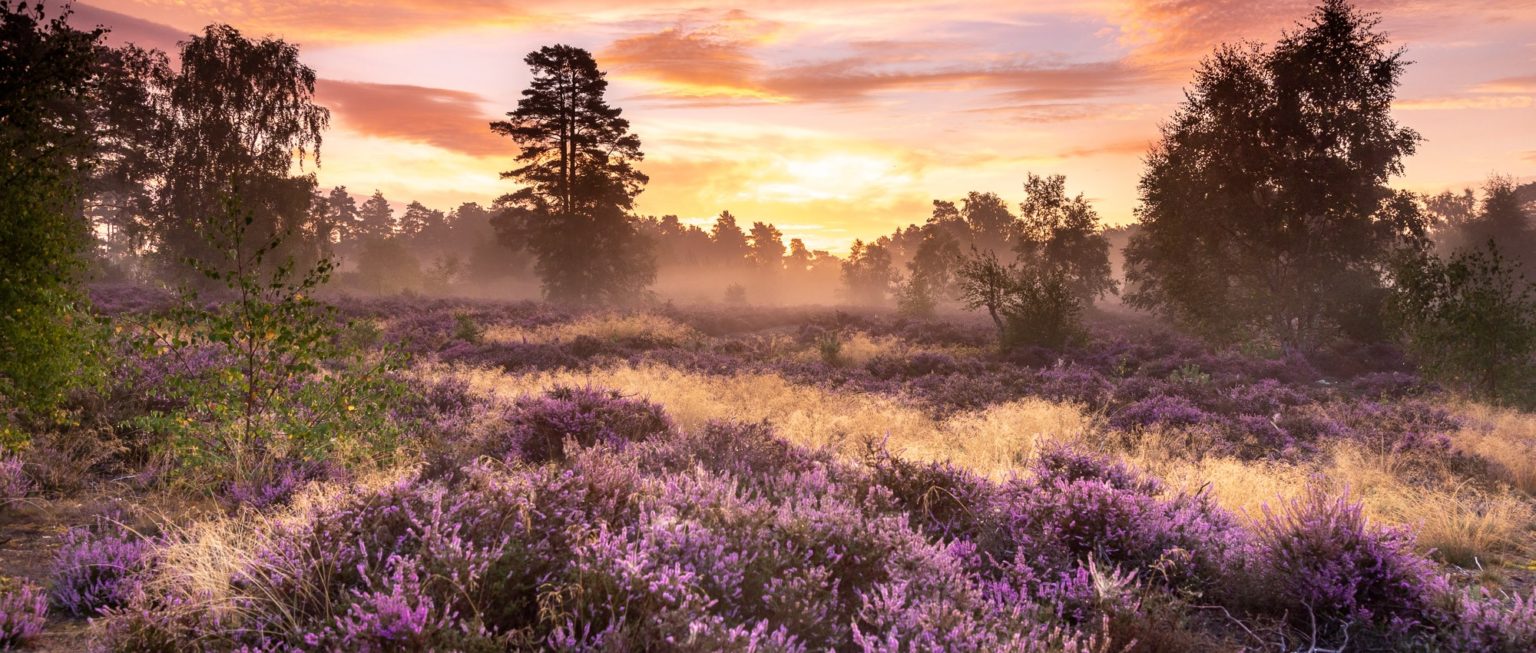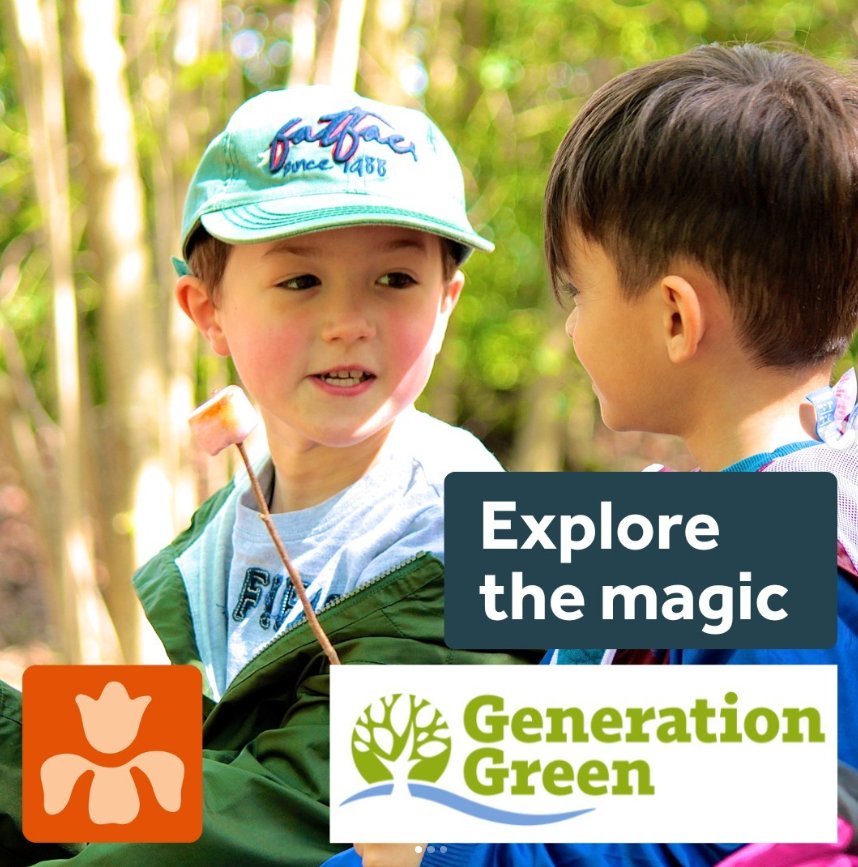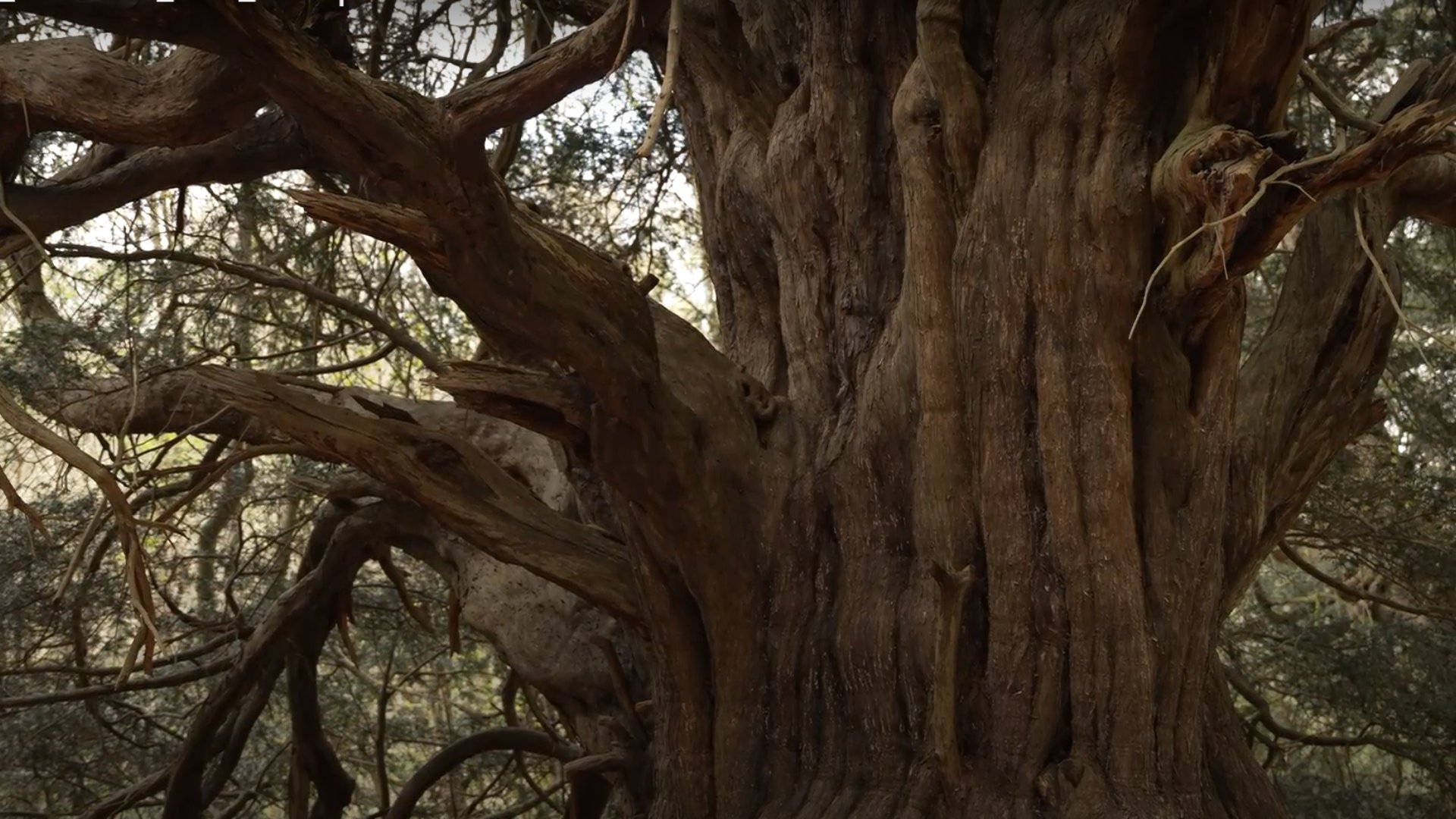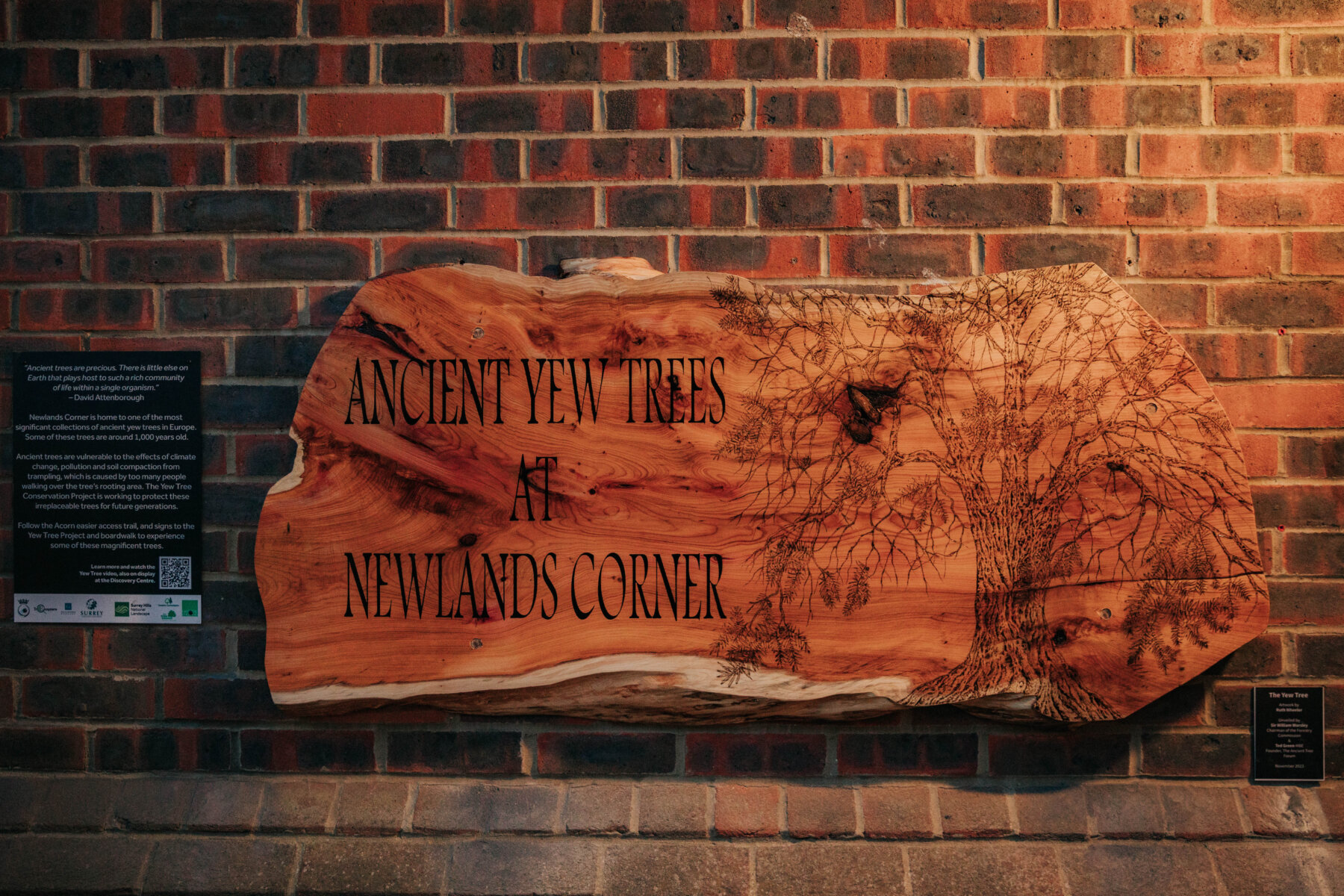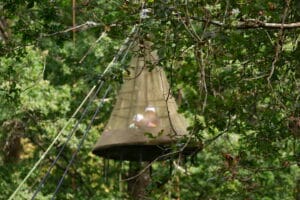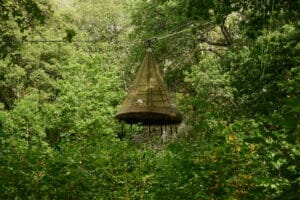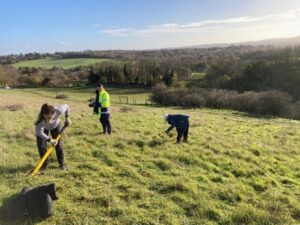New Children’s Book “A Raindrop Falls” Launches – Children inspiring us all to protect our water resources
Down once more I tumble,
Splashing free of sorrow.
Make the water blue again,
The rain will drop tomorrow…
– Children’s chorus from A Raindrop Falls
A new children’s book, A Raindrop Falls, celebrates the beauty and fragility of the Surrey Hills watercourses through the eyes of local schoolchildren. Funded by the Surrey Hills National Landscape, this book was launched at the historic Wotton House hotel, where the children were presented their books by Tim Hall, Chairman of Surrey County Council. The book is the result of a collaboration that brings conservation, creativity, and community together to inspire a better future for our rivers.
A Raindrop Falls was co-created by children from St Mark and All Saints C of E Primary School, Godalming, alongside author Lucy Reynolds and illustrator Katie Hickey. Over the course of seven workshops, both in the classroom and out in the field, students explored the journey of water from source to sea, translating their learning into poetry and illustrations that now fill the pages of this book, kindly published by Old Dungate Press.
The children physically traced the River Tillingbourne from its source near Abinger Common through Gomshall, Shere, and Shalford, where it joins the River Wey. Along the way, they learned to identify plant and animal species, studied river characteristics from upstream to estuary, and conducted water quality monitoring—testing for pH, nitrates, phosphates, and aquatic life. This hands-on experience was part of a wider citizen science initiative led by the River Wey Trust and Zero Carbon Guildford, empowering young people to understand the impact of human, agricultural, and industrial activity on river health.
Author Lucy Reynolds said.
“It’s been such a privilege working with the children to create A Raindrop Falls. Katie and I have been blown away by their imagination, creativity and care for the natural world – and by their determination to be part of a brighter future for our rivers. We hope they’re super proud of their beautiful creation as it shines out from the shelves!”
Tim Hall, Chairman of Surrey County Council said.
“Enabling children to experience and understand our watercourses in Surrey is helping inspire our next generation of environmental ambassadors to secure a better, healthier future for us all. This is such an important project for the Surrey Hills National Landscape to support.”
Ben, Zero Carbon Guildford said.
“Our waterways are in crisis, which has negative impacts on our health, the local economy and Surrey’s above-average rates of nature loss. No rivers in England currently meet good chemical status, but this book is filled with hope. It shows that through education, creativity, and community action, we can inspire the next generation to protect our wild waters.”
Through poetic writing and illustration workshops, the children transformed their scientific observations into a compelling narrative which not only educates but uplifts. A Raindrop Falls is a call to action and a celebration of the Surrey Hills landscape, ecology, and the power of young voices.
Copies will be made available at Surrey libraries, and you can purchase the book at all good book stores, with proceeds going to charity. This book is the second Surrey Hills book co-created with Lucy and Katie, the first being The Thousand Year Tree, more information here.
The project was made possible with thanks to:
- St Mark and All Saints C of E Primary School, Godalming
- Lucy Reynolds and Katie Hickey
- Surrey Hills National Landscape
- Surrey Hills Society
- Guildford Book Festival
- Old Dungate Press
- The River Wey Trust
- Juniper Hall Field Studies Centre
- Zero Carbon Guildford
- Gomshall Mill
- Wotton House Hotel
- Shere Museum
- Shere Hall
- Surrey Libraries

